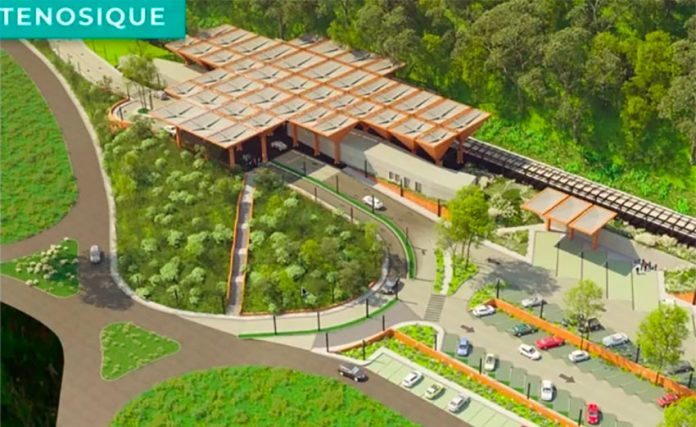A district judge in Campeche has granted a suspension order against a 222-kilometer stretch of the federal government’s Maya Train project, ruling that its construction could cause irreparable damage to the environment.
The ruling halts construction of section 2 of the US $8-billion Yucatán Peninsula tourist train. The section is slated to run from Escárcega, Campeche, to Calkiní in the same state.
The decision was handed down in response to an injunction request filed in July by more than 100 environmental and indigenous organizations that argued that construction of the section would cause deforestation and soil degradation and contaminate the Yucatán Peninsula aquifer.
The environmental damage would violate the rights of the indigenous Mayan people who live along the route, they said.
“This train will displace us, it will drastically change our way of life,” indigenous organization representatives told a press conference, asserting that the project was being imposed on them without prior consultation.
Xavier Martínez Esponda, operations director at the Mexican Center for Environmental Law, said that work on section 2 of the project can’t proceed unless a legal challenge overturns the judge’s suspension order.
Several suspension orders have been granted against construction of the train, the government’s signature infrastructure project, but a federal court revoked one in May after it was challenged by the National Tourism Promotion Fund (Fonatur), which is managing the 1,500-kilometer rail project. Fonatur is likely to also launch legal action against the latest ruling.
A consortium controlled by billionaire businessman Carlos Slim was awarded an 18.55-billion-peso (US $937.9 million) contract in April to build section 2 of the project, which will link cities and towns in the states of Tabasco, Campeche, Yucatán, Quintana Roo and Chiapas.
The project is divided into seven sections including two to be built by the army. President López Obrador officially inaugurated construction in June, pledging that the project will be completed by October 2022.
He said that construction of the railroad, which will also make use of existing tracks, would create more than 200,000 jobs by the end of next year. The president says that its operation will spur social and economic development in Mexico’s neglected southeast.
Experts have warned that its construction and operation poses a range of environmental risks among which are threats to the region’s underground water networks and the long-term survival of the jaguar. But the government denies that the project will have a negative impact on the environment.
Source: El Economista (sp), Milenio (sp)
